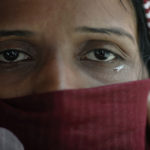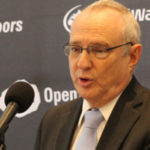In recent months I have been lecturing and teaching quite a bit on key anniversaries — on the centennial of the end of First World War, but also on that other tumultuous year, 1968.
The religious aspects of 1968 are not quite as legendary as other events and trends of that year, but they are extraordinarily significant.
Re-examining them today, what is perhaps most striking is the gulf that separates contemporary perceptions of key trends from later views. What we see at the time is very different from what later generations will recognize as the truly important developments.
That should be a powerful warning for us today. What currents or trends might we be missing?
The secular developments of 1968 have received plenty of attention in recent months: the assassinations and racial unrest in the United States; the popular youth movements around the world; violence in Paris and Mexico City; the continuing war in Vietnam; the Chinese Cultural Revolution; the first stirrings of global terrorism; and so on.
The world seemed to be in a period of grave crisis, even on an apocalyptic scale.
Each of these events, in different ways, discredited some long-accepted source of authority. Western liberal democracy encountered many critics and challenges, but so did the familiar alternative of Communism: the Czech invasion of August 1968 closed that alternative for anyone with a sense of moral decency.
But what were the religious responses? Assume you were following mainstream media through the year, what were the key stories illustrating the likely development of the world’s faiths to the crisis? The following is impressionistic, but I think it accurately reflects the tone of debate.
Continue reading this article at ABC Religion & Ethics.
Sign up for our weekly edition and get all our headlines in your inbox on Thursdays
Philip Jenkins is Distinguished Professor of History at Baylor University, and Co-Director for the Program on Historical Studies of Religion in the Institute for Studies of Religion.














We seek to connect God’s story and God’s people around the world. To learn more about God’s story, click here.
Send comments and feedback to Eric Black, our editor. For comments to be published, please specify “letter to the editor.” Maximum length for publication is 300 words.